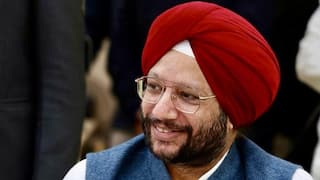Geopolitical Tensions, Protectionism Threat, New Markets Access — What's Driving India To FTAs
Modi Govt’s focus on bilateral FTAs has several motivations — from rising geopolitical tensions to gaining access to new markets, positioning India as Asian hub. Excerpts from Gateway House paper titled 'The Great Supply Chain Shift from China to South Asia?'

The Modi Government’s trade policy is placing renewed emphasis on preferential trade opening with trading partners through a flurry of bilateral trade deals since 2022. The UAE-India Comprehensive Economic Partnership Agreement entered into force in May 2022. An early harvest was reached in April 2022 for the Australia-India FTA and talks are on-going to conclude the full FTA by the end of 2023.
Negotiations are ongoing for a UK-India trade deal which could be the most comprehensive of India’s FTAs. British Prime Minister Rishi Sunak is interested in transforming historic ties into a modern economic partnership in the post-Brexit era while Indian Prime Minister Narendra Modi is keen to mark India as a rising geopolitical player in the global economy. The fact that there were six rounds during 2022 in talks which only started in January 2022 indicates the enthusiasm to get the trade deal done. There is a reasonable window of opportunity to conclude the UK-India FTA as general elections are likely in both countries in the next two years. Expending some political will to find pragmatic solutions to difficult negotiations issues can yield a deep FTA with 26 chapters covering tariffs, sustainable growth, product and service standards, SMEs, government procurement, data flows and intellectual property.
Interestingly, EU-India trade talks revived in June 2022 after being halted in 2013. The talks cover 23 policy areas. If concluded, this comprehensive deal would be an economically important FTA for India as the EU is its second largest trading partner after the US. Furthermore, the EU is a huge global player in global supply chains and on a par with East Asia in terms of world exports of intermediate goods. It could lead to many economic benefits for both parties like greater market access for businesses, lower import tariffs, easing of barriers to services trade and easier movements of professionals for work purposes.
The Modi Government’s focus on bilateral FTAs has several motivations: rising geopolitical tensions, a strategic move to counter the threat of rising global protectionism, gaining access to new markets and increase exports of goods and services, facilitating technology transfer, and helping to position the country as a complementary Asian hub to China. These new deals are significant because they are with Western trading partners and reflect plans for deep economic integration going well beyond India’s previous FTAs which focused solely on the goods trade and related measures.
In an uncertain global economy, however, the economic gains from these trade deals (such as more exports and faster growth) will not automatically accrue to India. To realise the benefits from the FTAs, Indian business needs strategies which raise its productivity and competitiveness to global standards. The Modi government recognises the challenge and in late August 2022 announced ambitious plans to restructure the Department of Commerce to support Indian business to export and join global supply chains. It is hoped that a re-designed Department of Commerce will address the issue of low preference utilization rates in India’s existing FTAs which means dealing with problems of information about preferences and cumbersome bureaucratic procedures in rules of origin. Implementing much-needed second-generation economic reforms are also needed to cut red tape affecting business, ensure reliable electricity and green the economy, and invest in education and training which will help boost lagging labour productivity. Furthermore, foreign investment and technology transfer into manufacturing needs to be supported by enhanced domestic industrial technology development... Stronger intellectual property legislation and legal enforcement, stronger partnerships between industry and science and technology institutions and better incentives for business R&D are ways forward. By working more closely together, business and government can ensure that the potential gains from India’s new FTA push are properly realised in difficult economic times.
Dr. Ganeshan Wignaraja is Professorial Fellow for Trade and Economics, Gateway House: Indian Council on Global Relations. The above excerpt from his paper titled 'The Great Supply Chain Shift from China to South Asia?' has been published with permission from Gateway House.
[Disclaimer: The opinions, beliefs, and views expressed by the various authors and forum participants on this website are personal and do not reflect the opinions, beliefs, and views of ABP Network Pvt. Ltd.]
Related Video
India@2047 Summit: Modi Calls for Innovation, Reforms, and National Resolve






































